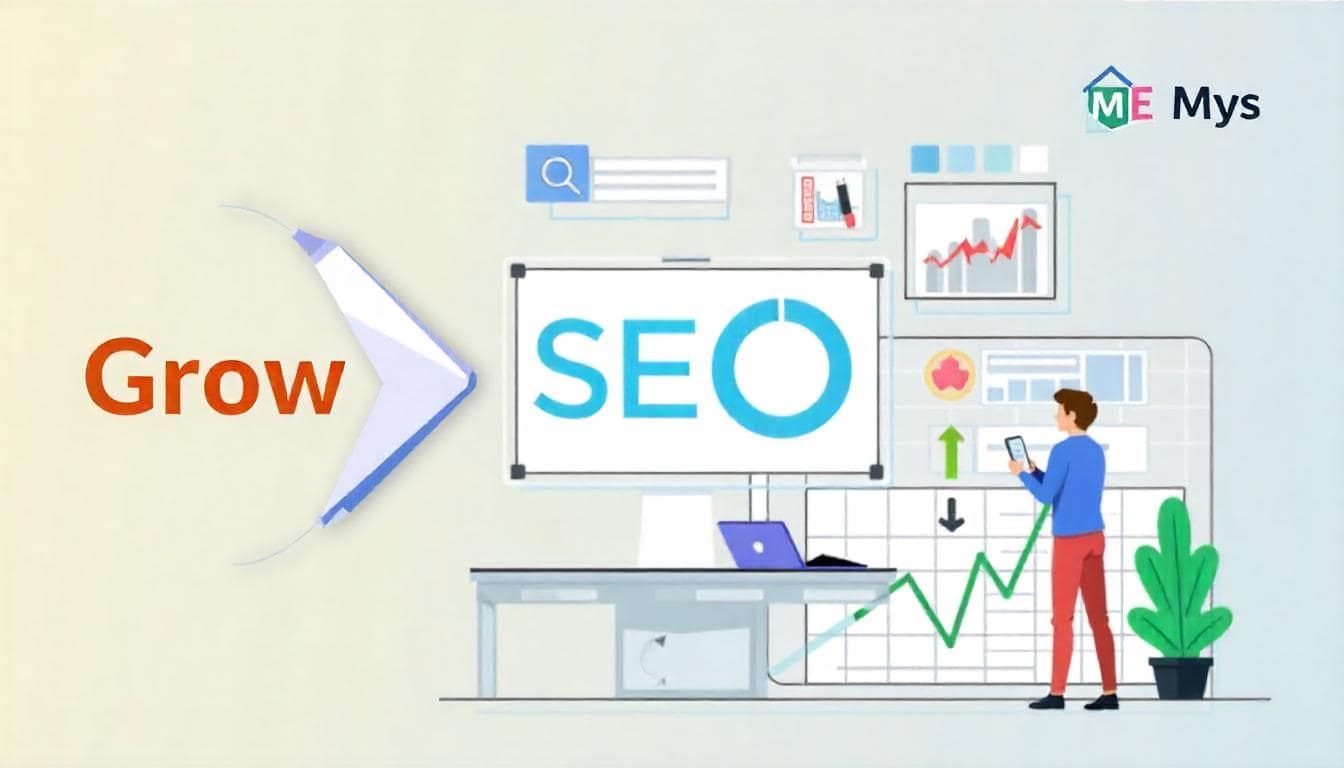
In the fast-paced SaaS landscape, few strategies offer the long-term revenue impact that SEO does. SEO for SaaS startups isn’t just about ranking on Google — it’s a cost-effective growth engine that helps attract high-intent users, convert them into paying customers, and ultimately increase your Monthly Recurring Revenue (MRR). For SaaS founders seeking scalable, predictable growth, investing in SEO is no longer optional — it’s a core business decision.

Why SEO Is an Economic Asset for SaaS Founders
According to FirstPageSage (2024), SaaS companies that prioritize SEO as part of their demand generation strategy see an average 6x ROI over 36 months. This makes SEO one of the most profitable long-term investments for SaaS businesses compared to paid channels, which typically deliver 2–3x ROI over a much shorter window.
1. Lower Customer Acquisition Costs (CAC)
Paid acquisition through Google Ads or social media can be effective, but it’s expensive and often unsustainable for early-stage SaaS companies. SEO, on the other hand, lowers CAC by attracting organic traffic from users actively searching for solutions your product offers.
Gartner’s research shows that organic leads cost 61% less than outbound or paid leads. When a potential customer finds your product through a helpful blog post, a comparison page, or an optimized landing page, they’re already “warm” — they’ve shown intent. This makes them more likely to convert, decreasing the cost per acquisition significantly.
2. Stable and Predictable Lead Generation
SaaS companies rely on predictable revenue streams — and SEO helps create predictable lead flow. With a proper content and keyword strategy, SEO brings consistent traffic from relevant search queries. That consistency supports stable revenue projections and gives founders better data to plan product development, staffing, or fundraising.
According to Ahrefs, 60.67% of all clicks go to the top 3 search results, so securing a strong ranking isn’t just about visibility — it directly translates to lead volume.
3. Higher Quality Leads That Convert Better
SEO tends to attract users who are deeper in the buying journey. A person searching “best CRM for small teams” or “alternatives to [competitor]” has real purchase intent.
HubSpot data shows that SEO leads have a 14.6% close rate, compared to 1.7% for outbound strategies like cold emailing or paid ads. That’s nearly 9x better performance, driven by intent-based search behavior.
4. Long-Term Revenue Compounding
Every well-ranking blog post, product page, or resource you create becomes a long-term asset. Unlike paid ads that vanish when the budget runs out, SEO continues to deliver value — sometimes for years.
According to Backlinko, the average age of a top-ranking page is over 2 years, which proves how SEO can be a compounding growth engine. A startup might begin with a trickle of organic leads, but after 12–18 months, they can see exponential growth — often surpassing what paid channels can deliver in terms of ROI.
5. Increased MRR Through Scalable Growth
Monthly Recurring Revenue (MRR) is the lifeblood of any SaaS company. SEO fuels this metric by delivering scalable, cost-effective acquisition. Instead of buying one lead at a time, SEO lets you build systems that bring leads automatically.
OpenView Partners found that companies with efficient organic acquisition have up to 30% higher net MRR growth than those relying on paid-only strategies. As more leads convert into paying subscribers, your MRR rises — without needing to scale spend proportionally.
6. Supports Better Valuation and Investor Appeal
Investors love businesses with low CAC, high LTV, and steady MRR growth. A solid SEO strategy contributes to all three. When your traffic is mostly organic and your customer pipeline is predictable, your business becomes less risky — and more attractive to VCs or acquirers.
According to SaaS Capital’s 2023 benchmark report, SaaS companies with strong organic channels saw up to 20% better retention and valuation multipliers than those without.
7. Defensible Competitive Advantage
SEO builds a moat around your business. Once your pages rank well and your brand gains domain authority, it becomes harder for competitors to displace you. This defensibility gives you room to experiment with pricing, expand your feature set, or target new markets — all while continuing to reap the benefits of existing SEO assets.
Common SEO Mistakes SaaS Startups Make (and How to Avoid Them)
While SEO offers significant ROI, many SaaS startups make avoidable mistakes that limit growth. Here are some common pitfalls — and how to sidestep them:
Mistake 1: Treating SEO as a Short-Term Play
SEO is not paid ads — it often takes 4–6 months to gain traction. Abandoning too early kills momentum.
✅ Fix: Commit to a 6–12 month roadmap, and track early indicators (rankings, traffic).
Mistake 2: Targeting Keywords With No Purchase Intent
High-volume terms may look appealing but bring low conversion.
✅ Fix: Focus on bottom-of-funnel keywords like “[competitor] alternative” or “best [tool] for startups”.
Mistake 3: Ignoring Conversion Optimization
SEO brings traffic, but poor UX or CTAs kill signups.
✅ Fix: Improve messaging, user flow, and call-to-actions on key pages.
Mistake 4: Publishing Content Without a Plan
Random blogs won’t rank.
✅ Fix: Use content clusters and map them to core SaaS features or pain points.
Mistake 5: Neglecting Technical SEO Basics
Slow sites and broken pages undercut rankings.
✅ Fix: Monitor with Google Search Console and PageSpeed Insights, or get a dev involved early.
Avoiding these missteps can significantly accelerate your time-to-value with SEO — and lead to faster MRR growth.
SEO Is a Growth Multiplier, Not a Marketing Tactic
For SaaS founders, SEO for SaaS startups should be viewed not as a marketing expense, but as a long-term growth multiplier. It strengthens your MRR, reduces CAC, and improves the economics of your business over time.

In an environment where efficiency, scale, and capital discipline matter more than ever, SEO offers a proven path toward profitable, compounding growth. If you’re building a SaaS startup and haven’t invested in SEO yet — now is the time.


